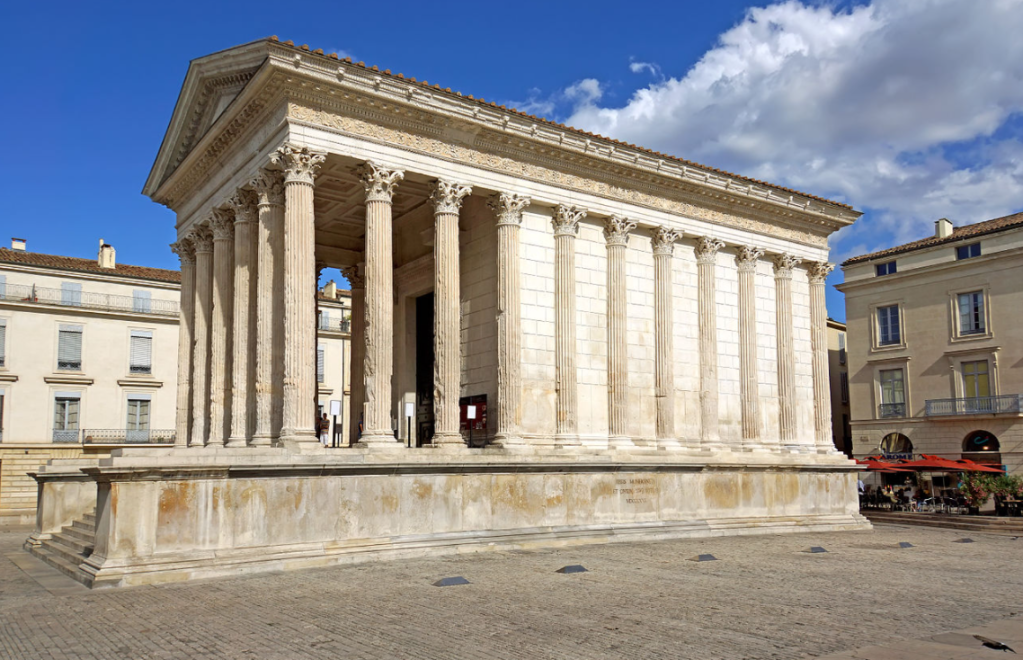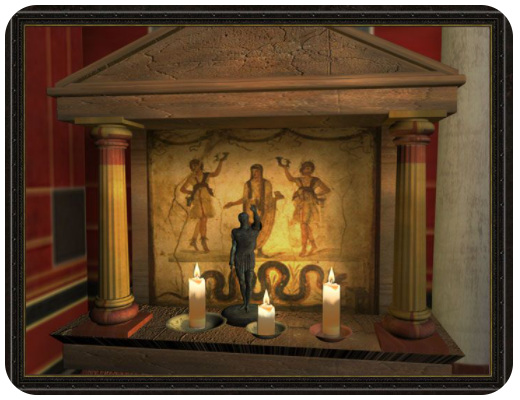The Roman Empire was a primarily polytheistic civilisation, which meant that people recognised and worshipped multiple gods and goddesses. Despite the presence of monotheistic religions within the empire, such as Judaism and early Christianity, Romans honored multiple deities.
Romans believed the gods helped shape the events of people’s lives on a daily basis. Good things were attributed to happy gods, and bad things happened if the gods were angry.
Romans paid allegiance to the gods both in public spaces and in private homes. While the Roman state recognised main gods and goddesses by decorating public buildings and fountains with their images, families worshipping at home also put special emphasis on the deities of their choosing.
Each home would have its own protective spirit, with an altar in the courtyard or atrium, as well as gods for different parts of the house (eg Vesta: hearth – the central fireplace for heating and cooking). Families would give offerings to the family spirit, and say a short prayer and make an offering before meals.


ACTIVITY: ROMAN GODS AND GODDESSES
Read these instructions, then click the quiz below to open the drag & drop quiz of Roman Gods and Goddesses.
Match the descriptions on the right, with the Roman god or goddess in the column on the left.
When you have them all correct [the boxes will become black]:
- hit ‘OK’ in the dialog box that tells you how quickly you did it,
- then screenshot / snip the screen [so you get something like this picture] and
- save it to your History notes / folder.

From ClassTools – https://www.classtools.net/dragdrop/202108_m3b8Q3
Think
In your notes, write down as many ways that you can identify how the Roman gods have had an impact down to the modern day?
